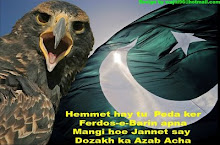The Pakistani military says it has successfully test-fired a medium-range cruise missile capable of carrying nuclear warheads.
The domestically-developed Cruise Missile Hatf-VII (Babur) with a range of 700 km was test-fired on Friday, Pakistan's military said in a statement.
"The Babur cruise missile, which can carry strategic and conventional weapons over a distance of 700 kilometers, has stealth capabilities," military spokesman Major General Athar Abbas said.
The missile also incorporates the most modern cruise missile technology of Terrain Contour Matching (TERCOM) and Digital Scene Matching and Area Co-relation (DSMAC).
The missile test was conducted to validate the design parameters of the weapon system and a new Missile Launch Vehicle (MLV).
The three-tube MLV enhances the targeting and deployment options in the conventional and nuclear modes.
The missile test comes as tensions between Pakistan and the US have intensified after White House officials threatened to launch a military action against Islamabad, accusing Pakistan of not being serious about fighting militancy on the Afghan-Pakistan border.
Pakistan's powerful Army Chief Gen. Ashfaq Pervez Kayani cautioned the US to think "10 times" before launching a military offensive. Kayani reminded US officials that Pakistan was a nuclear power and nothing like Iraq or Afghanistan.








